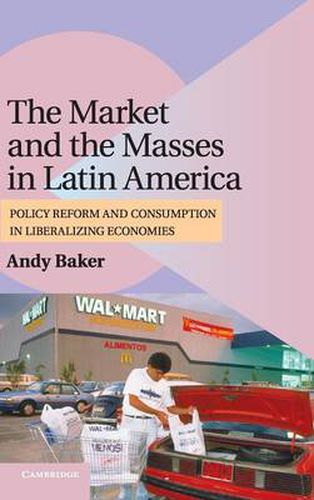Readings Newsletter
Become a Readings Member to make your shopping experience even easier.
Sign in or sign up for free!
You’re not far away from qualifying for FREE standard shipping within Australia
You’ve qualified for FREE standard shipping within Australia
The cart is loading…






What do ordinary citizens in developing countries think about free markets? Conventional wisdom views globalization as an imposition on unwilling workers in developing nations, concluding that the recent rise of the Latin American left constitutes a popular backlash against the market. In this book, Baker marshals public opinion data from eighteen Latin American countries to show that most of the region’s citizens are enthusiastic about globalization because it has lowered the prices of many consumer goods and services while improving their variety and quality. Among recent free-market reforms, only privatization has caused pervasive discontent because it has raised prices for services like electricity and telecommunications. Citizens’ sharp awareness of these consumer consequences informs Baker’s argument that a political economy of consumption has replaced a previously dominant politics of labor and class in Latin America.
$9.00 standard shipping within Australia
FREE standard shipping within Australia for orders over $100.00
Express & International shipping calculated at checkout
What do ordinary citizens in developing countries think about free markets? Conventional wisdom views globalization as an imposition on unwilling workers in developing nations, concluding that the recent rise of the Latin American left constitutes a popular backlash against the market. In this book, Baker marshals public opinion data from eighteen Latin American countries to show that most of the region’s citizens are enthusiastic about globalization because it has lowered the prices of many consumer goods and services while improving their variety and quality. Among recent free-market reforms, only privatization has caused pervasive discontent because it has raised prices for services like electricity and telecommunications. Citizens’ sharp awareness of these consumer consequences informs Baker’s argument that a political economy of consumption has replaced a previously dominant politics of labor and class in Latin America.